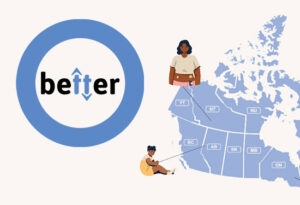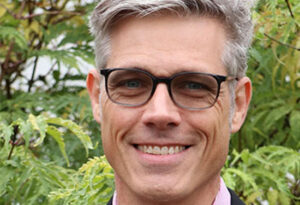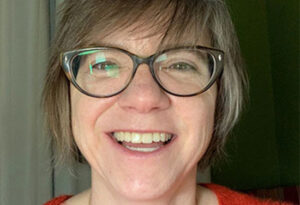November 22, 2019
 Geoff Beattie has been a devoted JDRF volunteer and active fundraiser since 2004 when his daughter was diagnosed with type 1 diabetes (T1D). Currently serving as cabinet co-chair for the In Our Lifetime Campaign for Central Canada, Geoff shares his story on how the chronic illness inspired his involvement with JDRF and changed his outlook on life.
Geoff Beattie has been a devoted JDRF volunteer and active fundraiser since 2004 when his daughter was diagnosed with type 1 diabetes (T1D). Currently serving as cabinet co-chair for the In Our Lifetime Campaign for Central Canada, Geoff shares his story on how the chronic illness inspired his involvement with JDRF and changed his outlook on life.
Our daughter was diagnosed with type 1 diabetes (T1D) when she was four years old. Like any parent would be, I was devastated and also struck with a sense of injustice: Why did this happen to our daughter? Why does she have to live with type 1?
Her doctor at the time was compassionate and also wise. “Why not her?” he asked us gently. “Whose children do you think get diabetes?”
It was a life-changing moment. Because of course, all our children can. And for us, at that moment and beyond, self-pity would not be part of the equation. Instead, with the expert care and cutting-edge science we were so fortunate to have, we became very pragmatic. She would live with type 1, but it would not define her. And while it would still be cause for some anxious moments (picture sneaking in and taking a blood sample while your seven-year-old daughter is asleep at a slumber party), she was able to flourish while managing a condition that would never hold her back.
I was struck then, and many times since, by how fortunate we are. At another time and place the diagnosis would have meant a very different outcome. It is still the case for too many, in too many places, that T1D is a devastating diagnosis. And it was in part that realization that spurred me to become involved with JDRF. It is obviously very personal to me, but the idea that I could have an impact on something that could be so meaningful – not just to my family, but also to society – gave me a great sense of hope and motivation.
I am a strong believer in supporting those with the knowledge and passion to solve big problems. As a businessman and a long-time trustee of the University Health Network in Toronto, I know just how rich our pool of expertise is, and what opportunity we have in Canada to make cutting-edge advances. Our health care system is constantly evolving and benefitting from new research. To offer financial support is the easiest part of the equation. When you invest your time as well as your money supporting a cause, you start to create a landscape where more options, more ideas and more understanding exists. You keep working away at it, drawing motivation from the progress the organization is making in order to fuel yourself and your continued commitment, and hopefully over a reasonable period of time substantial progress is achieved.
When it comes to diabetes, the search for a cure can feel slow. But I focus on the progress of the last 20 years, and know that as the pace of understanding grows, a cure may well be within sight. Meanwhile new fields of research are converging to create unprecedented potential for breakthroughs. The field of genomics is only just beginning to yield its fruit, which will be an incredible source of information and scientific advancements in the decades ahead. Wrap in new tools around data analysis and research and it is easy to feel optimistic.
For me, philanthropy has to be about engagement. I want to be connected to an issue and to the people I’m supporting, because it acts as a two-way street. Money is important – essential to research – but a system of financial support only grows with awareness. There are, of course, financial arguments for working on a goal like this. A cure for a disease has a multiplier effect on society. It frees up resources and people, allowing their attention to focus on the next problem. And we know that advances in research in one field of study have a cross-over benefit to others. It’s an exciting time for medical research, and especially for this illness. But financial arguments are only one part of the puzzle. Our shared responsibility – to each other and to support advances that benefit all of mankind – can never be forgotten. I believe that none of us can have the life we aspire to unless we share some of that with everyone. When you ask others to support a cause, it has to start from a fundamental place of belief.
I feel grateful to be able to support JDRF. And I am still humbled by the message from that doctor almost 20 years ago. Why me? Why not me? is the answer.
We are connected by our frailty as much as by our strength. And while disease can be indiscriminate – knowing no boundaries – our personal geography is not. We are lucky to live here, in this place, at this time in history. And if it has created any advantage at all, I truly believe we have a responsibility to honour that luck by sharing our good fortune in whatever small way we can.
Our daughter is a happy, healthy young woman with the world at her feet. She is not defined by any one thing – she is many things. I want that option for every young person diagnosed with T1D. And I want it for every parent of those children, too. I support JDRF to help make that dream a reality.




